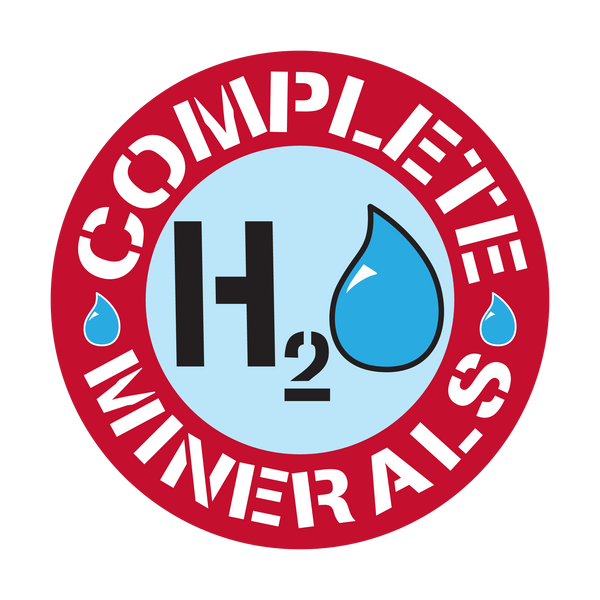Calcium is the most abundant mineral in the human body, playing a pivotal role in numerous physiological processes. Beyond its well-known contribution to bone health, calcium is essential for muscle function, nerve transmission, blood clotting, and heart health. Ensuring adequate calcium intake is crucial for maintaining overall well-being.
The Vital Roles of Calcium in the Body
Bone and Teeth Health
Approximately 99% of the body's calcium is stored in bones and teeth, providing structural integrity and strength. Adequate calcium intake is essential for bone development and maintenance, reducing the risk of osteoporosis—a condition characterized by weak and brittle bones. (Source: Office of Dietary Supplements (ODS))
Muscle Function
Calcium facilitates the contraction and relaxation of muscles. When a nerve stimulates a muscle, calcium is released, aiding in the contraction process. The removal of calcium from the muscle cell leads to relaxation. This mechanism is vital for all muscle movements, including those of the heart. (Source: Medical News Today, Wikipedia)
Nerve Transmission
Calcium ions play a key role in transmitting nerve impulses. They assist in the release of neurotransmitters, chemicals that relay signals between nerve cells, ensuring effective communication throughout the nervous system.
Blood Clotting
Calcium is a critical component in the blood clotting cascade. It aids in the transformation of prothrombin to thrombin, a necessary step in forming blood clots to prevent excessive bleeding. (Source: Medical News Today)
Heart Health
Calcium is essential for maintaining the rhythmic contractions of the heart. It helps regulate the heart's electrical activity, ensuring consistent and effective pumping of blood throughout the body.
Dietary Sources of Calcium
Incorporating calcium-rich foods into your diet is fundamental for meeting daily requirements. Notable sources include:
Dairy Products: Milk, yogurt, and cheese are traditional sources of calcium. (Sources: Better Health Channel, NCBI, WebMD)
Leafy Greens: Vegetables such as kale, broccoli, and bok choy offer significant amounts of calcium. (Source: The Nutrition Source)
Fortified Foods: Many plant-based milks (e.g., soy, almond) and cereals are fortified with calcium. (Source: Health)
Fish with Edible Bones: Canned sardines and salmon provide calcium through their soft, edible bones. (Sources: Mayo Clinic, Healthline)
Legumes and Nuts: Beans, lentils, and almonds contribute to calcium intake. (Source: Healthline)
It’s important to note that the bioavailability of calcium varies among foods. For instance, calcium from dairy products has a bioavailability of about 30%, meaning that approximately 30% of the calcium content is absorbed by the body. In contrast, certain plant foods like bok choy have a higher bioavailability of around 50%. (Source: The Nutrition Source)
Recognizing Calcium Deficiency
Insufficient calcium intake can lead to several health issues, including:
Muscle Cramps and Spasms: Low calcium levels may cause muscle aches and spasms, particularly in the hands and feet. (Source: Merck Manuals)
Fatigue: Calcium deficiency can result in extreme fatigue and a general feeling of sluggishness. (Source: Medical News Today)
Numbness and Tingling: A lack of calcium can lead to sensations of numbness and tingling in the fingers, toes, and around the mouth.
Osteopenia and Osteoporosis: Prolonged calcium deficiency can decrease bone density, increasing the risk of fractures. (Source: Office of Dietary Supplements (ODS))
The Case for Calcium Supplementation
While a balanced diet is the best approach to obtaining calcium, supplementation can be beneficial, especially for individuals with increased needs or dietary restrictions. Complete H2O Minerals' Calcium (Ca) – 2oz Concentrate offers a highly bioavailable form of calcium, delivering 60 mcg per serving (7% of the Daily Value). This liquid concentrate is designed for efficient absorption and supports bone health, muscle function, and overall physiological processes.

Safety and Dosage Considerations
The Recommended Dietary Allowance (RDA) for calcium varies by age and sex. For most adults, it ranges from 1,000 to 1,200 mg per day. It's essential to monitor total calcium intake from both dietary and supplemental sources to avoid excessive consumption, which can lead to adverse effects such as kidney stones. Consulting with a healthcare professional before starting any supplementation regimen is advisable to determine individual needs and appropriate dosages. (Source: Mayo Clinic)
Conclusion
Calcium is indispensable for maintaining strong bones and teeth, facilitating muscle contractions, transmitting nerve impulses, supporting heart function, and aiding in blood clotting. While a balanced diet rich in calcium-containing foods is ideal, supplementation can provide a practical solution for those unable to meet their calcium needs through diet alone. By understanding the multifaceted roles of calcium and considering high-quality supplements like Complete H2O Minerals' Calcium (Ca) – 2oz Concentrate, individuals can take proactive steps toward enhancing their overall health and well-being.


